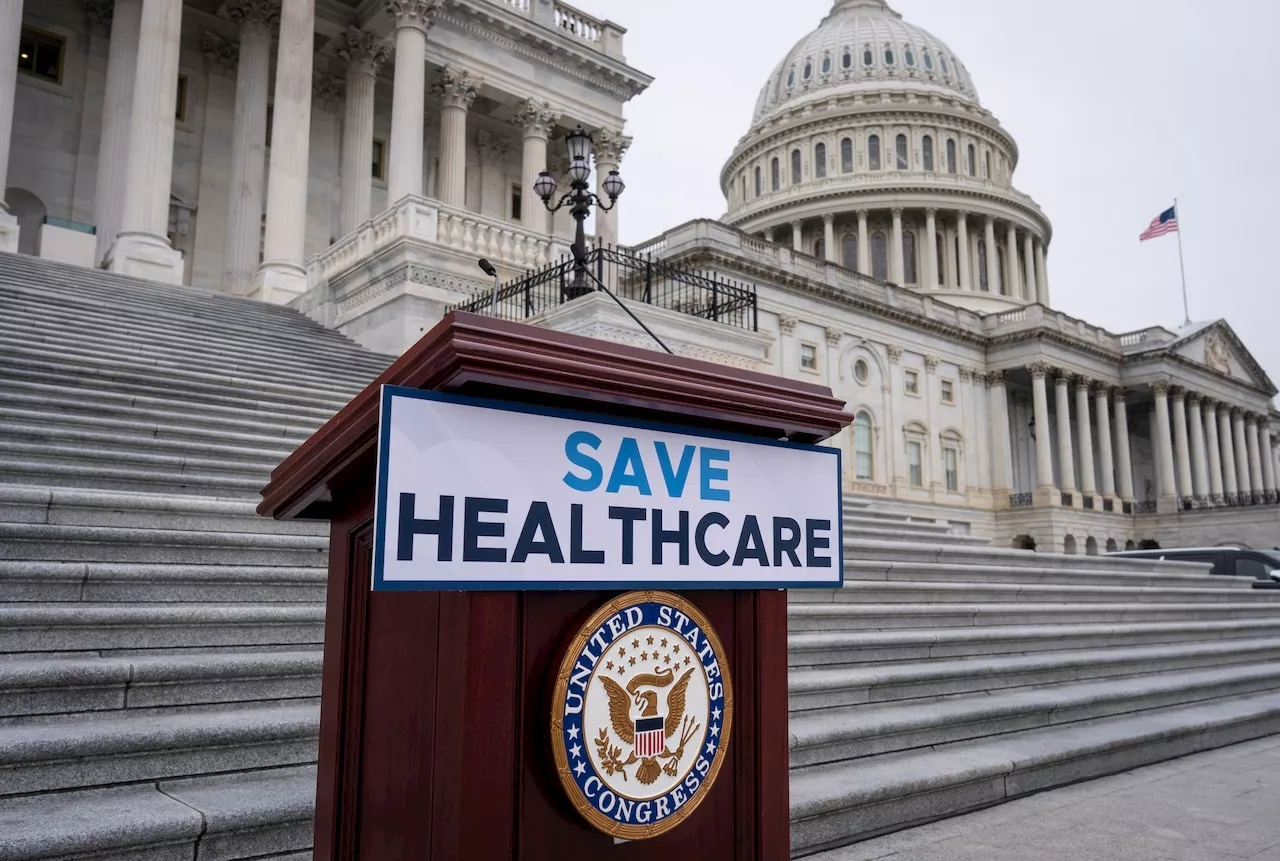Health
Obamacare Subsidies at Risk as Government Shutdown Continues

The ongoing government shutdown in the United States has intensified discussions surrounding the future of subsidies linked to the Affordable Care Act (ACA), commonly known as Obamacare. As federal funding halted on October 1, 2025, House Democrats have called for an extension of health care benefits to be included in any compromise that would reopen the government. The potential expiration of these subsidies by January 1, 2026 threatens to impact millions of Americans who rely on them for affordable health insurance.
A recent poll indicates that approximately 60% of Americans are “extremely” or “very” concerned about rising health care costs in the upcoming year. This concern spans various demographics, affecting both insured and uninsured individuals alike. The ACA, enacted in 2010, aimed to reduce the number of uninsured citizens and make health coverage more affordable by creating state-specific exchanges for insurance. These exchanges have significantly increased enrollment, largely due to the subsidies that have made insurance plans accessible.
The situation has become contentious, with Republican lawmakers asserting that they will not engage in negotiations until Democrats agree to a plan to reopen the government. Behind the scenes, both parties are exploring potential solutions, but a consensus remains elusive.
Democratic lawmakers emphasized the importance of extending the premium tax credits, which are vital for many Americans who benefit from lower premiums and reduced out-of-pocket costs. According to an analysis by the Kaiser Family Foundation (KFF), if these credits expire, annual premiums for many individuals could surge by an average of $1,016, reflecting an increase of 114%.
In 2022, Democrats managed to extend these tax credits for an additional three years but were unable to secure a permanent solution. As the deadline approaches, legislators are under pressure to find a resolution, especially with the open enrollment period set to begin on November 1, 2025. Democratic Senator Jeanne Shaheen from New Hampshire has been actively seeking common ground among lawmakers, suggesting that extending enrollment dates could be a viable option as negotiations continue.
Republican opposition to the ACA has reignited, with many party members advocating for a complete overhaul of the law rather than merely extending the subsidies. Senator Rick Scott of Florida stated, “The problem is not the expiring subsidies but the cost of health care.” Additionally, some Republicans have described the subsidies as “COVID credits,” alleging that they have facilitated fraudulent enrollments.
Despite resistance, there is a faction within the Republican Party that supports extending the subsidies. Senator Josh Hawley of Missouri commented on the necessity of these programs, emphasizing that many individuals utilizing ACA exchanges have few alternatives. Discussions among bipartisan groups have contemplated reform strategies, including modifying income limits for premium assistance.
As the stalemate continues, urgency grows among lawmakers to address the issue before the impending enrollment period. Many are aware that the consequences of inaction will affect the health care system and the financial well-being of millions of Americans. The situation remains fluid, with potential negotiations poised to shape the future of health care in the country.
In conclusion, the outcome of this debate will have significant implications not only for those relying on the subsidies but also for the broader landscape of American health care. Lawmakers are keenly aware that finding a compromise is essential as the deadline approaches, and the health of millions hangs in the balance.
-

 Business1 week ago
Business1 week agoIconic Sand Dollar Social Club Listed for $3 Million in Folly Beach
-

 Health1 week ago
Health1 week agoPeptilogics Secures $78 Million to Combat Prosthetic Joint Infections
-

 Politics1 week ago
Politics1 week agoAfghan Refugee Detained by ICE After Asylum Hearing in New York
-

 Science1 week ago
Science1 week agoResearchers Achieve Fastest Genome Sequencing in Under Four Hours
-

 Lifestyle1 week ago
Lifestyle1 week agoJump for Good: San Clemente Pier Fundraiser Allows Legal Leaps
-

 Health1 week ago
Health1 week agoResearcher Uncovers Zika Virus Pathway to Placenta Using Nanotubes
-

 World1 week ago
World1 week agoUS Passport Ranks Drop Out of Top 10 for First Time Ever
-

 World1 week ago
World1 week agoRegional Pilots’ Salaries Surge to Six Figures in 2025
-

 Entertainment1 week ago
Entertainment1 week agoJennifer Lopez Addresses A-Rod Split in Candid Interview
-

 Science1 week ago
Science1 week agoMars Observed: Detailed Imaging Reveals Dust Avalanche Dynamics
-

 Top Stories6 days ago
Top Stories6 days agoChicago Symphony Orchestra Dazzles with Berlioz Under Mäkelä
-

 World1 week ago
World1 week agoObama Foundation Highlights Challenges in Hungary and Poland









